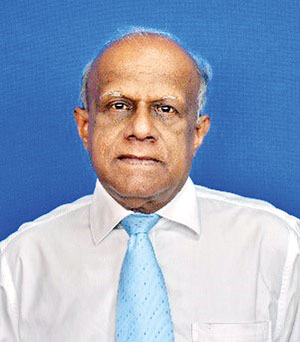News
Redesigning a top class public health system for the future

Dr. Palitha Abeykoon
Sri Lanka should consider transitioning to an ‘institution disease control model’ like the Centres for Disease Control (CDC) in developed countries, said a top public health official on Thursday.
“We can establish a first rate rule of public health in this country, one that can have an international reputation,” said the Special Envoy on COVID-19 in Southeast Asia for the World Health Organization (WHO), Dr. Palitha Abeykoon.
He was speaking as the chief guest at the inauguration of the 26th Annual Academic Sessions of the College of Community Physicians of Sri Lanka (CCPSL) which is currently headed by former Chief Epidemiologist Dr. Nihal Abeysinghe.
Delving into how Sri Lanka can develop a top class public health system, Dr. Abeykoon said that challenges like the pandemic present exceptional opportunities for the CCPSL to re-examine the public health system and redesign it for the future, ensuring the centrality of primary healthcare and taking into consideration the social determinants of health.
He said: “The last two years have been difficult for public health professionals and experts. These professionals like you who have endangered your health and lives to serve the patients and the community are the real heroes of this country. The nation is indebted to you. Most of us are living through probably the only major pandemic we will experience in our lifetime. At least we hope so, because two such pandemics in one lifetime would be a great misfortune and can only result due to a very bad collective karma.
“We know that this too cannot be ruled out as an impossibility. The famous French American microbiologist René Dubos said, ‘Human destiny is bound to remain a gamble because at some unpredictable time and in some unforeseeable manner, nature will strike back’.
Calling the novel coronavirus “a puzzling medical enigma” with more questions than answers, Dr. Abeykoon said the pandemic has highlighted the cardinal importance of good public health. That’s the core of the public health mission and public health was the most vital intervention in reducing transmission and cases and to minimize the burden on the healthcare system.
“In Sri Lanka, we adopted a whole of government, a whole of society approach. We gathered new information and evidence about the disease, to inform and plan our response. Therefore, if there is one lesson to us from the pandemic, it should be that the central need is to further strengthen our public health system……built on pre-existing infrastructure,” he said.
However, Dr. Abeykoon stressed that the dilemma we face is restrictions of movement and imposition of public health and social measures, while keeping the economy going. How do we best balance the ‘lives and livelihoods dilemma’? This may not be a fair formulation of the problem because both are crucially important.
“But we do have to make choices. This is what some of you as experts in the Health Ministry are called upon to do each day. This is what the country expects from public health experts like you in the larger interest. What then are the specific attributes that give public health experts an important position and an epistemic authority in society,” he asked.
He added: “Someone can be considered an expert if he or she has a combination of the following traits – a good knowledge of the subject, solid experience in the field, a set of significant achievements, motivation, focus to keep up to date, an excellent reputation among peers and no personal interest in the issues at stake for gaining personal rewards. There are two main reasons why public health experts are trusted by the people: resorting to experts actually brings results and the role they play is cultural and intellectual.
“Resorting to experts means problems can be solved rationally and objectively and we can avoid controversy. It is imperative that we emerge from the COVID-19 tunnel with a strengthened public health system.”

